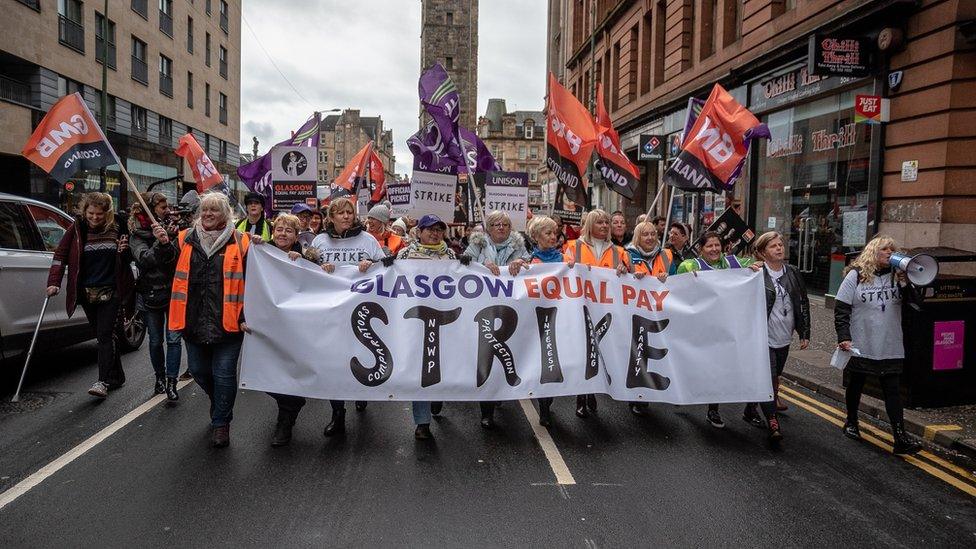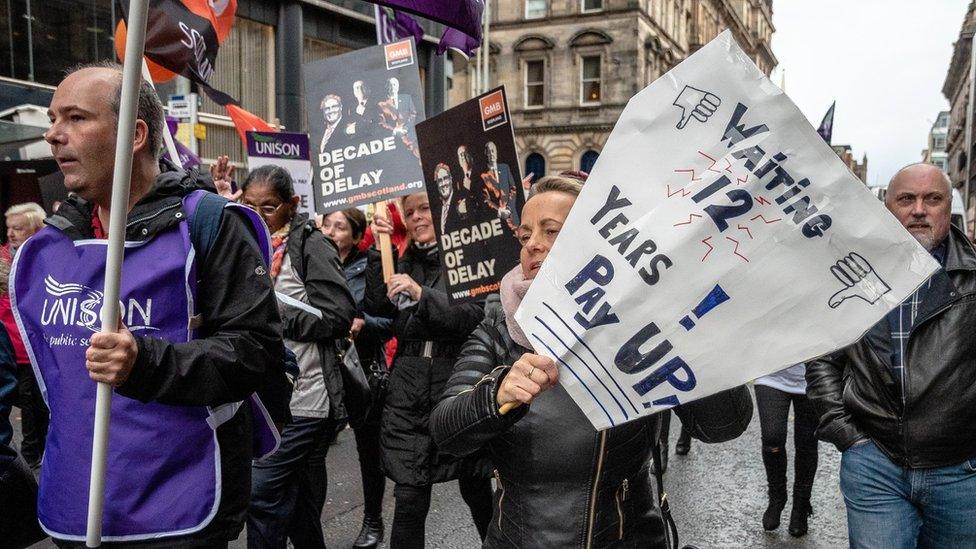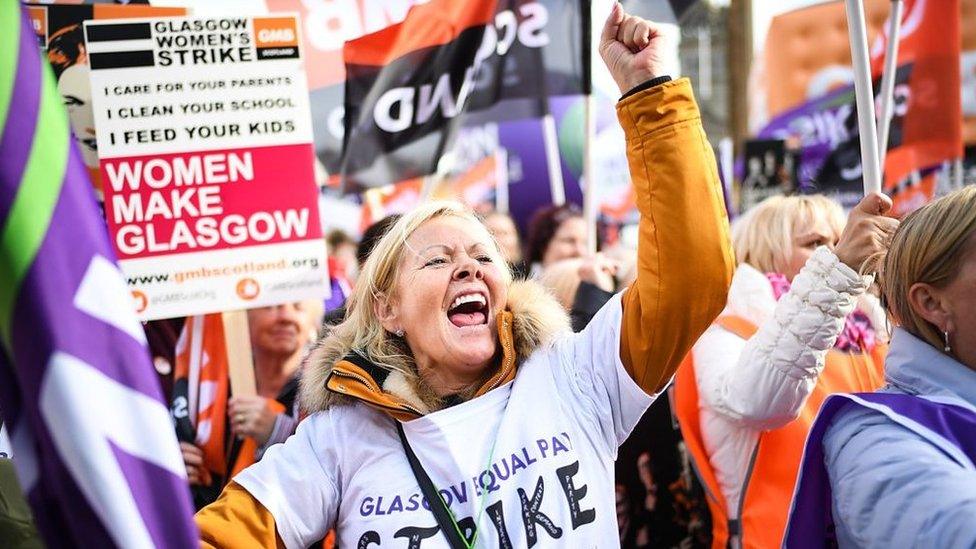Glasgow City Council staff balloted over equal pay case delays
- Published

Thousands of council workers have previously staged a strikes over the dispute
Union members involved in a £500m equal pay dispute with Glasgow City Council are to be balloted on industrial action.
The Unite union is accusing the council of "unnecessary delays" in settling claims from after March 2018.
In 2017 it was ruled that the council discriminated against female workers.
A spokesperson for the council said it was following the process which had been agreed with unions, and was ready to make offers on new claims.
The original dispute centred around workers in traditionally female-dominated roles such as catering or home care being paid up to £3 an hour less than those in male-dominated jobs, such as refuse workers or grave diggers.
In 2017, two judgements at the Court of Session ruled that both the council's payment protection scheme and its Workforce Pay and Benefits Review discriminated against female workers.
New pay structure
Some of the equal pay claims are thought to go back to 2005, with the women affected being owed tens of thousands of pounds each.
The Unite union said that despite progress being made, about 5,000 claimants had had no settlement for the period up to March 2018.
And about 18,000 claimants are still waiting for a settlement for the period after March 2018 because a new pay and grading system had not been implemented.

The new pay structure has been delayed and will not be fully implemented until 2024.
Unite, alongside other trade unions, is demanding the local authority make payments to staff immediately.
The ballot on industrial action will close on 14 March.
Wendy Dunsmore, Unite industrial officer, said: "Thousands of claimants are being told that they may have to wait several years before they get their settlements.
"Many received an interim payment up to 2018 and they should do so again."
Glasgow City Council said it was following the process the unions had wanted in 2019.
It said the new pay and grading scheme had been delayed, largely because job evaluations could not take place during the Covid pandemic, but the new timing was agreed with the unions.
Related topics
- Published7 December 2019
